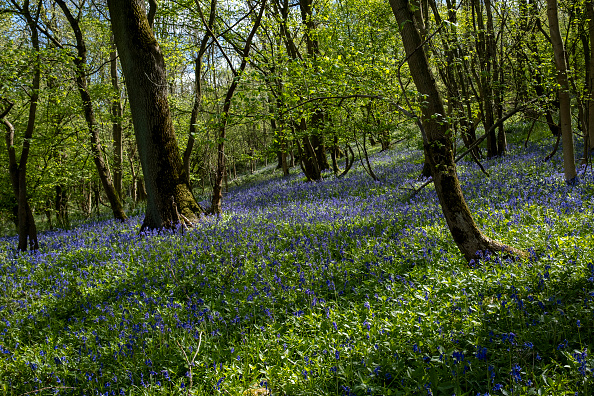Councils staggeringly 'unprepared' for Biodiversity Net Gain law roll-out
A law firm found a startling lack of preparation from UK authorities following a freedom of information request

Just five local authorities in England have landowner Section 106 agreement templates for Biodiversity Net Gain (BNG) sites, according to new research.
All planning applications for development that affects over 25 sqm of habitat are now required to demonstrate a biodiversity net gain of at least 10%. Where that gain cannot be achieved on-site developers must buy BNG credits from the government.
However, freedom of information requests by the planning law firm BDB Pitmans, following the introduction of the new building regulations, has revealed only five of the 317 local and 10 national park authorities in England have BNG plans in place.
Only 5 councils have Section 106 agreements in place
Biodiversity Net Gain laws have been introduced meaning housebuilding projects in England will be required to provide a positive contribution to local ecosystems.
Homebuilding projects must now provide at least a 10% gain in biodiversity – which broadly means a variety of life – or else face having their planning permission rights removed. This forms part of the government's plans to halt species decline by 2030.
Landowners wishing to put forward land for BNG schemes must either obtain a landowner Section 106 agreement from a local authority or enter into a conservation covenant with a registered third-party provider, called a ‘responsible body’.
However, 315 local and national park authorities replied to the FOI with just Buckinghamshire Council, Devon County Council, Dorset Council, Warwickshire County Council and the Broads National Park having landowners Section 106 agreement templates in place. A further 25 local authorities told the firm that they are preparing templates.
Get the Homebuilding & Renovating Newsletter
Bring your dream home to life with expert advice, how to guides and design inspiration. Sign up for our newsletter and get two free tickets to a Homebuilding & Renovating Show near you.
30 councils ‘do not understand the regime at all’
A planning law expert stated local authorities seem to not understand the BNG laws or how they apply to planning consent.
Angus Walker, a Partner and planning law specialist at BDB Pitmans who made the FOI requests said: “Worryingly, at least 30 local authorities appear not to understand that a landowner Section 106 agreement does not relate to a planning permission, believing such agreements are part of a planning application.
“We recognise that the BNG regime is still in its infancy, but the results of this FOI request do suggest that local authorities are at best not fully prepared or, worse, that they do not understand the regime at all.”

Angus Walker specialises in representing clients involved in promoting or opposing applications for Development Consent Orders (DCOs) for nationally significant infrastructure projects governed by the Planning Act 2008. With over a decade of focused experience in this field, he is a recognised leader in this domain. In addition to DCOs, he offers counsel on hybrid bills, transport and works act orders, harbors act orders, and other specialised consents.
‘This lack of readiness will inevitably slow down an already challenged planning process’
It was also revealed that many local authorities had failed to install dedicated biodiversity officers to assess applications.
The FOI request also asked the 317 local authorities and 10 national park authorities whether they had named biodiversity officers in place. A total of 128 authorities told the firm they did, with the remaining authorities stating that it would be covered by planning officers.
Walker adds: “Local authorities have had quite some time to prepare for the BNG regime and it will be of concern that so few are at a point that developers and landowners would expect. With local authorities expecting some 19,000 applications a month with a BNG obligation, this lack of readiness will inevitably slow down an already challenged planning process.
“The good news is, however, that we would expect local authorities to rapidly improve their BNG obligations, with greater process and efficiency as applications are received and progressed.”
Sam is based in Coventry and has been a news reporter for nearly 20 years. His work has featured in the Mirror, The Sun, MailOnline, the Independent, and news outlets throughout the world. As a copywriter, he has written for clients as diverse as Saint-Gobain, Michelin, Halfords Autocentre, Great British Heating, and Irwin Industrial Tools. During the pandemic, he converted a van into a mini-camper and is currently planning to convert his shed into an office and Star Wars shrine.

